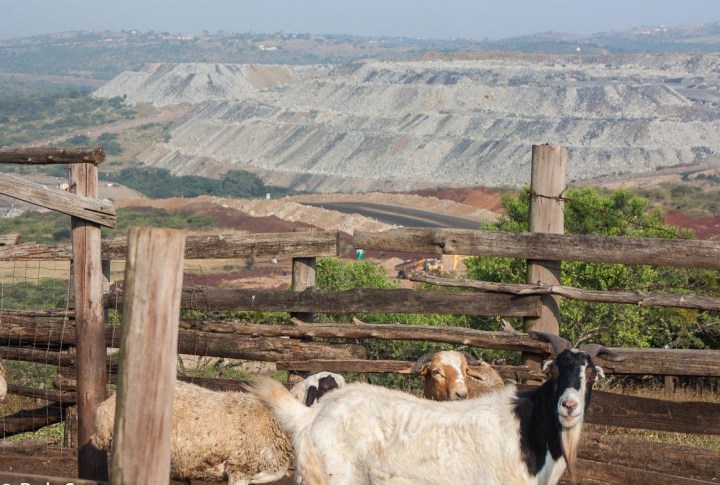OP-ED
When mining defeats farming, the people lose their food

In many parts of Africa and South America, rural development is a game of tug-of-war: Farmers and agriculturalists on one side of the rope, and domestic and international mining giants on the other side.
I was sitting at a high-level policy round table earlier this week. The question at hand: could (and should) soybean production be increased in South Africa? After all, demand is increasing across the region. Soybeans are critical for animal feed – and as incomes rise, so does the demand for animal products.
As agribusiness executives quipped back and forth, one asked:
“Why can’t we expand soy production in Mpumalanga?”
Because the mining houses beat you in the competition for land and you can’t share – because the environmental damage can be irreversible in some cases.
In many parts of Africa and South America, rural development is a game of tug of war: farmers and agriculturalists on one side of the rope, and domestic and international mining giants on the other side. Historically, government policies have often favoured the extractors – it was easy to “get rich quick” at the expense of farmers.
In recent months, farmers in Peru’s central Arequipa region have led a protest against the construction of Tia Maria, a large open-pit copper mine, by Southern Copper Corps, an international mining company. The mining site is located 2km from the Tambo Valley, and is home to 24,000 people who rely on agriculture for their livelihood. The protests have resulted from fear of the long-term consequences of open-pit mining on agriculture, the environment, and freshwater, as chemicals such as cyanide, nitrogen oxide and sulfur dioxide are leaked into the surroundings. Tia Maria Mine would threaten a minimum of 1,300ha of rich agricultural land.
The protests in Peru began peacefully: unions and farmers came together to set up roadblocks in the Tambo Valley. At their core, they rejected the notion that their own livelihoods should suffer at the expense of an international mining company. Surprising, right? However, when they took to the streets to peacefully protest, they were met by more than 400 federal police, who used excessive violence to quell the farmers.
The tug-of-war game between agriculturalists and mining firms over land use has a significant implication: food security. When mining takes precedence over farming, such that land cannot be used to grow crops, a country risks creating food shortages.
In South Africa, mining, particularly for coal, has irrevocably damaged land, and thus, agriculture potential – a point raised by the agribusiness executive at the roundtable. While Mpumalanga holds 40% of all of South Africa’s moderate and high-potential arable land, it is also particularly vulnerable to being negatively impacted by mining, given the province’s coal endowments.
A study by the Bureau for Food and Agricultural Policy (BFAP) found that at the current rate of coal mining, about 12% of the country’s total high potential arable land will be permanently damaged by coal mining with a further 14% being subjected to coal prospecting applications.
The BFAP study showed that current coal mining activities could lead to a loss of 284,844 tons of maize a year, with an additional vulnerability coming from 162,736 tons grown in areas that are currently being prospected. This has marked effects on food security – the price of maize in the South African market could increase by 14%.
If coal mining continues to grow, thereby extending the loss of maize-growing land within the province, approximately 240,000ha of land could be lost, translating to 1.2-million tons of maize, ultimately enough to make South Africa a permanent maize importer.
So, let’s go back to our game of tug-of-war between our agriculturalists and mining companies. Whether a farmer in Arequipa, Peru or Mpumalanga, South Africa, the struggle is largely the same. There is a limited amount of highly arable land. While mining firms have generally been more powerful, it has robbed farmers of their livelihoods, and by extension, people of their food. Addressing this requires a clear and updated demarcation of land use in South Africa.
Moreover, as many financial institutions are reluctant to finance coal mining institutions because of growing concerns about its implications on climate change, there is a need for a reprioritisation of land use. In Mpumalanga, where agribusinesses see the potential for agriculture production expansion, coal, which has been dominant for decades, seems to be on the back foot as the scramble for renewables accelerates by the day. DM
Gracelin Baskaran is a development economics PhD candidate at the University of Cambridge.


















 Become an Insider
Become an Insider